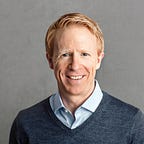The Story of a Hedge Fund Startup, and Why You Should Care
Hedge funds and private equity, once considered exclusive territory of sophisticated investors, are heading to Main Street. Alternative investments, or “alts” as they are sometimes called, are becoming the “It Girl” for retail financial advisors and retirement plan brokers. But just because we receive an invitation, should we attend the party?
Lars Kroijer’s, “Money Mavericks: Confessions of a Hedge Fund Manager” provides an insider’s answer. He combines an entrepreneur’s story of launching a new business with a glimpse into how the hedge fund industry works, a small and often tight-lipped community. The author’s surprisingly common challenges in business partner selection, staffing and sales make for an engaging read, with the behind-the-scenes look an added bonus.
And while many of us have little time for the details and jargon of our retirement plan (example– TDF’s are increasingly your employer’s QDIA; translation: Target Date Funds, Qualified Default Investment Alternatives), Kroijer’s story reads like good, easy fiction. Further, sitting atop the financial world pecking order, running a hedge fund meant, more or less, you were the smartest guy in the room. You could do much worse than hearing Kroijer’s perspective on financial matters.
But should you invest?
Many investment experts, perhaps most, would agree that the market can be beaten. Similar to Blackjack, if you count cards and stay alert to the shifting odds, a slight informational advantage can be had. The problem is the cost of counting each card; Blackjack begins to feel like work.
For hedge funds, the “work” takes the form of fund manager compensation, often 2% annually and 20% of any gains. Plus, as the author describes, including charts, see below, there are operating fees and a collection of sales and distribution costs. All in, expenses can be upwards of 5% annually.
And that creates a problem. As hedge fund popularity soared — there were ~10,000 funds at the peak — informational advantage is harder to obtain. And when the value of the “edge” is less than the costs to obtain, negative “marginal utility” in the words of economists, the market begins to look for better places to invest.
Kroijer’s fund was “market neutral,” purposefully uncorrelated with overall market performance. However, as the author discovered, “market neutral” is only so interesting. Like a surgeon whose art is so complex it can only be appreciated by other surgeons, when it comes to money we tend to simplify: “did we make money, or not?” (see Duhigg’s “The Power of Habit,” my review here). The pressure to make more money led to increased borrowing — “gearing” — to achieve higher investor returns. And after five years of solid, if not spectacular performance, a bad trade made with a higher debt load inflicted a 4% loss on the fund.
That may not sound like much. The market can drop 4% over a few bad months, or sooner. But a trade that generates that loss in the matter of a few hours can be enough to spook your customers, who have the ability to withdraw funds quickly. Some anchor clients did. Rather than disadvantage the remaining with a smaller fund base, Kroijer returned his investors’ money and headed to the proverbial “beach.”
What the financial services industry is constantly looking for, like most industries, is the next big thing. Alternatives are beginning to play that role, so stay tuned. In the meantime, Kroijer’s book is an entertaining, non-Silicon Valley start-up story. Joining the author for a walk into the unknown, this reader wondered and the author subsequently asks, can the industry produce a product people care about at a price they are willing to pay? To his credit, Kroijer is not sure.
Thanks for reading. Comments and suggestions for other topics welcome.
Below are a few posts on my experience with money and the financial industry in general:
· “Money Advice for Millennials: How to Save for a (Not So) Distant Future”
· “How Bank Fees are Nudging Us to the Right Answer”
· “Your 401(k) and the New Rules of Retirement Savings”
· “Retirement Savings and Healthcare Costs: A Balancing Act”
Below are reviews of popular titles in the financial space:
· John Bogle (the co-Founder of Vanguard) “The Clash of Cultures: Investment vs. Speculation” here.
· Ric Edelman, the founder of Edelman Financial, “The Truth About Money: Everything You Need to Know About Money” here.
· Eric Tyson’s, “Investing for Dummies” here.
HSA Coach. Health is WealthTM
Our personal health document storage and health savings account (HSA) educational app is now available. App Store here. Google Play here.
